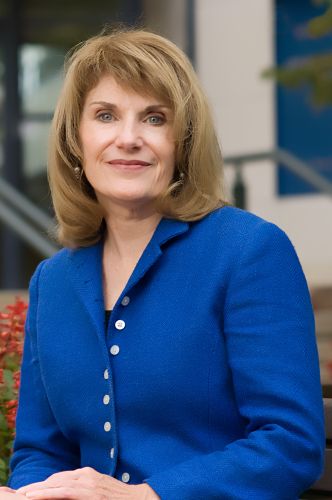NNIP honors the contributions of Cleveland NNIP partner Claudia Coulton

On the occasion of Dr. Claudia Coulton’s retirement from Case Western Reserve University, the National Neighborhood Indicators Partnership (NNIP) leadership and local members express deep appreciation for her immeasurable contributions to the network and the field of community information. Dr. Coulton joined Case Western Reserve University as an assistant professor in 1978 and had a distinguished career of teaching, scholarship, and applied research.
In leading the Center on Urban Poverty and Social Change in the 1990’s, she was an innovator in adopting the mission to collect and organize data from various local agencies to make them available to the community, with a focus on helping people and places with low incomes. She was the first to demonstrate that it was possible to use local data to track changing neighborhood conditions between censuses and the payoff of doing so. Claudia brought the phrase “democratizing information” to life.
Over the years, the network benefited from learning from Claudia and her team as the Center created sophisticated property and people-based data systems for the Cuyahoga County that had led to endless local insights on topics such as housing markets, the development of young children, and the impact of neighborhoods on child and family outcomes. As an example, the Poverty Center won NNIP’s G. Thomas Kingsley Impact Award in 2018 for an analysis of the effects of poor housing conditions on school readiness. She also recruited and mentored many talented staff members along the way and encouraged them to participate in the network.
NNIP would not have been as strong as it is today without Claudia. She helped write some of the early guides for our networks on administrative data and on vital records that we still reference today. She generously offered advice to countless partners over the years and helped to guide the overall direction of the network through serving on the Executive Committee. Most importantly, she modeled lifelong learning for the network, always being eager to learn from everyone to serve the community better – whether a research assistant or an executive director or someone from a small city or large region.
She also shared her passions for her areas of expertise to help other partners advance their practice. The local work in Cleveland inspired the very first NNIP cross-site project about spatial mismatch of jobs for welfare recipients as well as NNIP’s eleven-city effort to address the challenges of people returning from prison. She was a co-lead in the network’s cross-site project on neighborhoods and health. A decade later, she helped move the whole network forward in recognizing the value of holistic school readiness systems and the importance of bring place-based data into integrated data systems.
Claudia’s impact extends beyond Cleveland and NNIP. She is one of a small group of researchers who deeply understands the connections between people and place. For example, her research during the Annie E. Casey Foundation’s Making Connections initiative led to fresh perspectives about the complexity of residential mobility of people with low incomes and how people understand the geography of their neighborhoods.
NNIP’s founding director Tom Kingsley was Claudia’s biggest fan and co-authoring the book Strengthening Communities with Neighborhood Data with her meant the world to him. Personally, NNIP-co-directors Kathy Pettit and Leah Hendey have both been inspired by her dedication to using data and research to benefit the people and neighborhoods of Cleveland and enriched by her friendship over the many years. Claudia’s influence will live on as NNIP partners provide communities help for using data in their 32 cities and NNIP partners emerge in new places across the U.S. She will continue to stay engaged as a consultant and advisor at Case Western Reserve University and as an alumni as NNIP.
